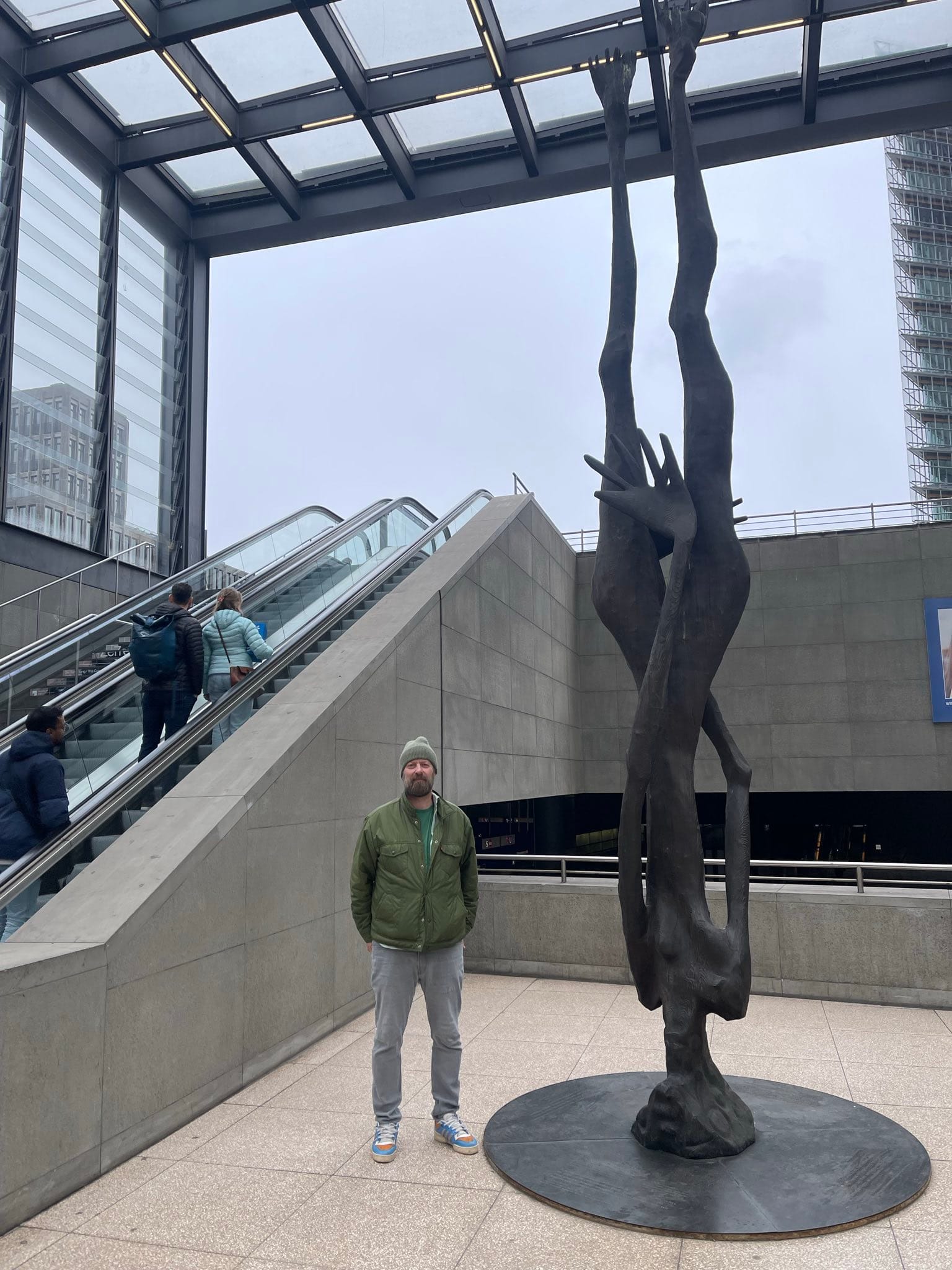The Authority of Knowledge and Epistemology: Historical Context and Modern Implications
Greetings from Berlin,
Throughout history, those in power have manipulated information to shape narratives and control populations. The digital age has amplified this challenge, making it harder than ever to distinguish fact from fiction. As we grapple with modern disinformation, we can draw valuable lessons from historical events like the Inquisition, which relied on fear, misinformation, and exploitation of prejudices to maintain control.
The antidote to disinformation isn't appointing an arbiter of truth, but addressing the underlying erosion of trust in our institutions. Governments can rebuild this trust by embracing radical transparency, allowing citizens to see the inner workings of decision-making processes.
By fostering genuine public participation and open dialogue, we create a society more resilient to misinformation and more capable of collective discernment. As to give no trust, is to get no trust.
In this post, we'll explore the evolution of disinformation from ancient times to today, examining how past events like the Inquisition can inform our approach to combating misinformation in the modern world.
The current travesty witnessed in the US elections underscores a fundamental crisis of trust. Questions about the integrity of information, the credibility of sources, and the legitimacy of authority figures dominate public discourse. This turmoil reflects deeper epistemological conflicts about who holds the authority to define truth. These conflicts are not new, they echo historical struggles where controlling knowledge equated to wielding power.
Historically, in Europe, the Catholic Church exemplified the ultimate authority over knowledge, with its doctrines unchallenged and dissent punished. The Church's treatment of figures like Giordano Bruno, Galileo Galilei, and Roger Bacon highlights this dynamic. Bruno's theories of an infinite universe and Galileo's support for heliocentrism were revolutionary ideas that clashed with established doctrines. The Church labeled these ideas as dangerous misinformation, akin to how controversial views are sometimes branded as "fake news" today. Bruno was burned at the stake, and Galileo was subjected to the Inquisition and house arrest.

"Truth does not change because it is, or is not, believed by a majority of the people." Giordano Bruno
Roger Bacon faced similar persecution. Bacon believed that a more complete understanding of natural laws and the properties of things would foster wonderful inventions: incredibly fast conveyances that could move independently of animal power; submarines and diving bells for exploring the ocean floor; machines for human flight; alchemical processes that could prolong life; and mirrors and lenses that could set fire to entire armies or produce terrifying and delightful optical illusions.
"Ships will go without rowers and with only a single man to guide them. Carriages without horses will travel with incredible speed. Machines for flying can be made in which a man sits, and skillfully devised wings strike the air in the manner of a bird. Machines will raise infinitely great weights, and ingenious bridges will span rivers without supports." Roger Bacon
These speculative technologies exemplify the promise of "scientia experimentalis," Bacon’s theory of technology, which authenticated natural knowledge and offered a blueprint for how human ingenuity could harness the secret, untapped potential of nature. However, his radical ideas and advocacy for empirical science were deemed dangerous by the Church. Bacon was imprisoned for his scientific writings that were deemed heretical by some Church authorities.
These historical instances reveal the perils of allowing a singular authority to monopolize truth. The Church's control over knowledge stifled scientific progress and suppressed intellectual freedom. Similarly, modern-day accusations of misinformation often serve to consolidate power and discredit dissenting voices. The debate over who can be trusted with the truth is as relevant now as it was during the time of Bruno, Galileo, and Bacon.
An emblematic example of historical information control is the Vatican's Apostolic Library. This repository of ancient texts and knowledge, guarded and secretive, demonstrates how information asymmetries create and sustain power. The secrecy of such institutions illustrates the risks inherent in concentrated control over knowledge, which can lead to immense wealth and influence for the few while impoverishing the broader society intellectually and materially.
In our digital age, the dissemination and control of information have taken on new dimensions. The internet has democratized access to information, allowing for a proliferation of voices. However, this has also led to an explosion of misinformation, making it harder to discern truth from falsehood. This situation mirrors the historical control of information by authoritative institutions but on a much larger scale. The challenge today is to protect free speech and ensure the integrity of information without succumbing to authoritarian tendencies.
A pivotal moment in democratizing the spread of information was the invention of the printing press by Johannes Gutenberg in the mid-15th century. Gutenberg's press made the mass production of books possible, drastically reducing the cost of books and making them accessible to a broader audience. This technological innovation enabled the spread of new ideas and knowledge, challenging the Church's monopoly on information. The proliferation of printed material was instrumental in the Protestant Reformation, which questioned the Church's practices and doctrinal positions. This schism led to a series of religious wars across Europe between Catholics and Protestants, such as the Thirty Years' War, which devastated the continent. These conflicts underscore the potent consequences of redistributing the power to disseminate information and challenge established authorities.
In my advocacy for open-sourced AI, I see many similarities to these historical struggles. Open-source AI promotes transparency, collaboration, and the democratization of knowledge, much like Gutenberg's press did for information. Yet, the debates around AI today often reflect a shift from narratives that once spoke of democracies that are of, by, and for the people, to more authoritarian-sounding constructs of democratic institutions for the people. This latter formulation is reminiscent of the German Democratic Republic, an authoritarian state that paradoxically labeled itself a democracy.
The stakes are high. Democratic societies thrive on the free exchange of ideas and rigorous debate. The legacy of figures like Bruno, Galileo, and Bacon reminds us that the pursuit of truth often involves challenging prevailing authorities and enduring persecution. Today's task is to create an environment where diverse ideas can be freely expressed and critically examined, ensuring that the principles of free thought and scientific inquiry are upheld.
By reflecting on the historical context of the authority of knowledge, we should be able to better navigate the complexities of contemporary debates over free speech and misinformation. The lessons of the past urge us to be vigilant against the dangers of information control and to foster a society where truth is determined through open, democratic processes rather than dictated by authoritarian powers.
Thank you for your attention,
Bart
